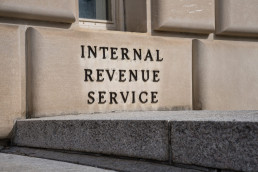Understanding Crypto Tax Debt: How to Resolve Issues with the IRS
The rise of cryptocurrency has brought new financial opportunities, but it has also led many investors into unexpected tax trouble. If you’ve bought, sold, or traded crypto without properly reporting it, you may now be facing IRS debt. The good news is that there are ways to address the problem before it escalates. Here’s what you need to know about crypto taxes and how to resolve tax debt effectively.
Why Crypto Investors Face IRS Issues
Many people don’t realize that the IRS treats cryptocurrency as property, similar to stocks or real estate. This means that every transaction—whether a trade, sale, or even spending crypto—can have tax consequences. Common reasons investors fall into tax debt include:
- Failure to Report Transactions – Many crypto holders don’t realize they must report gains and losses on their tax returns.
- Complex Record-Keeping – Tracking crypto transactions across multiple exchanges can be overwhelming, leading to reporting mistakes.
- Underpayment of Taxes – Some investors assume they only need to pay taxes when converting crypto to cash, but tax liabilities can arise from trades as well.
- IRS Crackdowns – The IRS has increased enforcement efforts, issuing letters and audits to crypto investors who failed to report their transactions.
Consequences of Ignoring Crypto Tax Debt
If you owe taxes on your crypto activity, ignoring the problem can lead to serious consequences, such as:
- IRS Notices and Audits – The IRS may send a CP2000 or other notice demanding unpaid taxes and penalties.
- Tax Liens and Levies – Unpaid tax debt can result in IRS claims against your property, wages, or bank accounts.
- Increased Penalties and Interest – The longer you wait to address tax debt, the more it will grow due to penalties and interest charges.
How to Fix Crypto Tax Problems
If you’re struggling with IRS debt due to cryptocurrency transactions, you have several options for resolution:
- File or Amend Tax Returns – If you failed to report crypto transactions, filing amended returns can help correct past mistakes.
- Set Up a Payment Plan – If you can’t pay your full tax bill immediately, an IRS installment agreement allows for manageable monthly payments.
- Explore an Offer in Compromise (OIC) – If you qualify, you may be able to settle your tax debt for less than you owe.
- Request Penalty Abatement – If you have a reasonable cause for not reporting your taxes properly, you may be eligible to have penalties reduced.
- Get Professional Help – Crypto tax regulations are complex, and an experienced tax resolution expert can help navigate the process and negotiate with the IRS.
Get Back on Track with Expert Help
Crypto tax debt doesn’t have to ruin your financial future. If you’re facing IRS issues due to cryptocurrency transactions, Accelerated Tax Resolution can help. Our team specializes in resolving tax debt and negotiating with the IRS so you can move forward with confidence. Contact us today to explore your options and regain financial peace of mind.
What Happens If I Ignore an IRS Notice?
Receiving a notice from the Internal Revenue Service (IRS) can be unsettling, but disregarding such correspondence can lead to serious consequences. It's essential to understand the importance of these notices and the potential repercussions of ignoring them.
The Purpose of IRS Notices
The IRS sends notices for various reasons, including:
- Informing You of Outstanding Taxes: Notices may indicate taxes owed, including penalties and interest.
- Requesting Additional Information: The IRS might need clarification or further details regarding your tax return.
- Notifying You of Audits or Examinations: Some letters inform you of an impending audit or examination of your tax filings.
Consequences of Ignoring IRS Notices
- Accruing Penalties and Interest: Unpaid taxes accumulate interest and penalties over time, increasing your financial burden.
- Enforced Collection Actions: The IRS can initiate actions such as levies on your bank accounts or wages and place liens on your property.
- Loss of Appeal Rights: Failing to respond within the specified timeframe can forfeit your right to contest the IRS's findings.
- Negative Impact on Credit: Tax liens can appear on your credit report, adversely affecting your credit score and future borrowing ability.
- Potential Legal Action: In severe cases, ignoring IRS communications can lead to legal proceedings, including criminal charges for tax evasion.
Steps to Take Upon Receiving an IRS Notice
- Read the Notice Carefully: Understand the issue and any actions required on your part.
- Respond Promptly: Timely responses can prevent further complications and preserve your rights.
- Seek Professional Assistance: Consulting a tax professional can provide guidance tailored to your situation.
Preventative Measures
- Keep Accurate Records: Maintain thorough documentation of your financial activities and tax filings.
- Stay Informed: Regularly review your tax obligations and any correspondence from the IRS.
- Address Issues Early: Proactively managing tax matters can prevent escalation and additional penalties.
At Accelerated Tax Resolution, we understand the complexities of tax issues and the stress that IRS notices can cause. Our team is dedicated to assisting you in navigating these challenges, ensuring that you respond appropriately and effectively to any IRS correspondence.
Contact Us Today
If you've received an IRS notice or have concerns about your tax situation, don't hesitate to reach out. We're here to provide the support and expertise you need to achieve a favorable resolution.
Accelerated Tax Resolution
📞 (630) 428-3015
I Received a CP1058 Letter. What Should I Do Next?
Receiving an unexpected letter from the IRS can be stressful, especially when it involves serious action. The CP1058 is one such notice that requires your immediate attention. If you’ve received this letter, it’s crucial to understand its purpose, the potential implications, and how to address it effectively.
What Is a CP1058 Letter?
The CP1058, also known as the Final Notice of Intent to Levy and Your Right to a Hearing, is issued by the IRS when they plan to levy your property to collect unpaid taxes. This letter indicates that previous attempts to resolve the debt have not been successful, and the IRS is now taking steps to secure payment through more aggressive means, such as:
- Garnishing wages
- Seizing bank accounts
- Placing liens on property
The notice also informs you of your right to request a Collection Due Process (CDP) hearing within 30 days of the date on the letter.
Why Did You Receive a CP1058 Letter?
The IRS issues a CP1058 when you owe back taxes and have not taken action to resolve the debt despite prior notices. Common reasons include:
- Unpaid Tax Balances: Taxes from previous years remain unpaid.
- Ignored IRS Notices: Previous communications about the balance were not addressed.
- Missed Payment Plans: Defaulting on an agreed-upon installment plan.
This letter signals that the IRS is prepared to use all available means to collect the owed amount unless action is taken promptly.
Steps to Take If You Receive a CP1058
- Do Not Ignore the Letter: This is a final warning from the IRS. Ignoring it could lead to serious financial consequences.
- Review the Notice Carefully: Understand the details, including the amount owed, the deadline to respond, and your right to a hearing.
- Request a Collection Due Process Hearing: If you disagree with the IRS’s actions or need time to resolve the debt, filing for a CDP hearing within 30 days is essential. This can temporarily halt the levy process.
- Evaluate Your Options: Depending on your situation, you may:
- Pay the amount in full, if possible.
- Negotiate an Installment Agreement to pay in smaller amounts over time.
- Explore an Offer in Compromise to settle the debt for less than what you owe.
- Request a Currently Not Collectible status if you cannot pay at all.
- Seek Professional Help: The IRS collection process is complex, and responding incorrectly can worsen your situation.
Why Professional Assistance Matters
A CP1058 letter represents one of the IRS’s most serious collection actions. Navigating the response process requires a solid understanding of tax law and IRS procedures. A tax resolution expert can:
- Evaluate your financial situation and recommend the best course of action.
- Represent you in communications with the IRS, including during a CDP hearing.
- Help negotiate terms to reduce or eliminate the stress of the debt.
At Accelerated Tax Relief, we specialize in helping taxpayers resolve issues like the CP1058 notice. Our team understands the urgency and complexity of these situations and is here to guide you through every step.
Don’t wait until it’s too late. If you’ve received a CP1058 letter, call us today at (630) 428-3015. Let us help you take control of your tax situation and work toward a resolution that protects your financial future.
I’m Facing an IRS Audit. What Should I Do?
Few things cause more anxiety for taxpayers than an IRS audit. While it’s natural to feel concerned, understanding the process and preparing appropriately can make all the difference. If you’ve received a notice, here’s what you need to know to handle the situation with confidence.
Why Does the IRS Audit Taxpayers?
An audit is essentially the IRS’s way of double-checking your tax return for accuracy. While some audits are triggered by discrepancies or unusual claims, others are simply random. Common reasons include reporting errors, high-value deductions, or discrepancies between your return and information reported by third parties, such as employers or banks.
Types of Audits
Audits can vary widely in complexity. A correspondence audit may involve nothing more than submitting documentation by mail, while a field audit might require an in-person review of your financial records.
Understanding the type of audit you’re facing is the first step in addressing it effectively.
How to Respond
When you receive an audit notice, start by reading it carefully. The notice will explain why your return is being reviewed and what the IRS is requesting. From there:
- Gather Documentation: Collect all relevant records, including receipts, bank statements, and prior returns.
- Stay Organized: Present your information in a clear and concise manner to avoid delays or confusion.
- Respond on Time: Delaying your response can lead to penalties or escalation of the audit process.
Do You Need Professional Help?
While some audits can be resolved with straightforward responses, others require in-depth knowledge of tax law. Working with a tax resolution expert can relieve much of the stress and uncertainty. A professional can analyze your case, represent you in communications with the IRS, and work to minimize penalties or additional tax liabilities.
Preventing Future Audits
While not all audits can be avoided, maintaining accurate records and double-checking your return for errors can reduce your chances of being flagged. Filing on time and ensuring consistency between your return and third-party records is also essential.
Facing an Audit? We Can Help
An IRS audit doesn’t have to be overwhelming. At Accelerated Tax Relief, we help taxpayers navigate the audit process with confidence. Whether you’re facing a correspondence audit or something more complex, we’re here to guide you every step of the way.
Call us today at (630) 428-3015 to schedule a consultation. Let us help you resolve your audit efficiently and protect your financial future.
Tax Liens: What You Need to Know and How to Address Them
A tax lien is a serious matter that can have significant implications for your financial health. Understanding what a tax lien is, how it can affect you, and the steps you can take to resolve it is crucial.
What Is a Tax Lien?
A tax lien is a legal claim by the government against your property when you fail to pay a tax debt. This claim can attach to all your assets, including real estate, personal property, and financial accounts. While a lien doesn't mean immediate seizure of your property, it does secure the government's interest in your assets, which can lead to more severe actions if not addressed.
How Does a Tax Lien Affect You?
- Credit Score Impact: A tax lien can significantly lower your credit score, making it more challenging to secure loans or credit.
- Property Transactions: Selling or refinancing your property becomes difficult with an active lien, as it clouds the title.
- Business Operations: For business owners, a lien can attach to all business property and rights to business property, including accounts receivable, potentially disrupting operations.
Steps to Resolve a Tax Lien
- Full Payment: Paying your tax debt in full is the most straightforward way to remove a lien. The IRS typically releases the lien within 30 days after full payment.
- Installment Agreement: If full payment isn't feasible, consider arranging a payment plan with the IRS to pay off your debt over time.
- Offer in Compromise: In certain situations, you might qualify to settle your tax debt for less than the full amount owed.
- Lien Subordination: This option allows other creditors to move ahead of the IRS, which can make it easier to obtain a loan or mortgage.
Preventing Future Tax Liens
- Timely Tax Payments: Ensure you file and pay your taxes on time to avoid liens.
- Open Communication: If you're unable to pay your taxes, contact the IRS promptly to discuss alternative arrangements.
- Professional Assistance: Consulting with a tax professional can provide personalized strategies to manage and prevent tax liabilities effectively.
At Accelerated Tax Resolution, we specialize in assisting individuals and businesses facing tax liens. Our experienced team is dedicated to helping you navigate the complexities of tax issues, negotiate with the IRS on your behalf, and develop a plan to resolve your tax debts.
Contact Us Today
If you're dealing with a tax lien or other tax-related concerns, don't hesitate to reach out. Our professionals are here to provide the guidance and support you need to regain your financial footing.
Call (630) 428-3015 to start your journey towards financial freedom!
Tax Attorney in Naperville: Expert Solutions for Your IRS Challenges
Tax issues can feel overwhelming, especially when you’re dealing with the complexities of IRS rules and regulations. For those in Naperville, IL, finding the right help is critical. Accelerated Tax Resolution, in partnership with skilled tax attorneys, provides the expert guidance and solutions you need to tackle your toughest tax problems.
Our collaboration with experienced local attorneys ensures that every case is approached with a well-rounded strategy. Whether you’re facing a tax audit, liens, or wage garnishment, this partnership allows us to deliver comprehensive, legally sound solutions tailored to your needs.
Comprehensive Tax Resolution Services
With the combined expertise of Accelerated Tax Resolution and trusted tax attorneys, we offer a full range of services, including:
- IRS Notice Resolution: Interpreting and resolving intimidating IRS letters with legal backing.
- Tax Lien Assistance: Partnering with attorneys to lift liens and protect your assets.
- Offer in Compromise (OIC): Negotiating settlements to reduce your tax debt.
- Installment Agreements: Structuring manageable payment plans with legal oversight.
- Innocent Spouse Relief: Protecting you from responsibility for your spouse’s tax mistakes.
- Audit Representation: Advocating for you during IRS audits with professional and legal expertise.
- Penalty Abatement: Reducing or eliminating IRS penalties with a strategic approach.
- Bank Levy Release: Stopping the IRS from seizing your bank accounts.
- Wage Garnishment Release: Ending wage garnishments with strong, attorney-supported advocacy.
The Power of Partnership
If necessary, we will partner with an attorney to create a powerhouse team that will get you the best results possible. Our collaboration with attorneys strengthens our ability to provide the best outcomes for our clients. Together, we deliver results that not only address your immediate concerns but also protect your long-term financial well-being.
Why Choose Accelerated Tax Resolution?
At Accelerated Tax Resolution, we understand that no two tax situations are the same. That’s why we take a client-first approach, focusing on your individual circumstances and goals. Our expertise in Naperville’s tax landscape allows us to craft customized strategies that resolve your issues and protect your financial future.
Our team’s dedication to achieving results has earned us the trust of clients throughout Naperville and the surrounding areas. Whether it’s tackling a complex IRS notice or negotiating a fair resolution to your tax debt, we’re committed to guiding you every step of the way.
Take Control of Your Tax Challenges Today
If you have tax debt or other IRS issues in Naperville, Accelerated Tax Resolution and our trusted attorney partners are here to help. Don’t face the IRS alone—let us guide you through the process with confidence and care.
Call us today for a free consultation!
Payroll Tax Problems: What Every Business Owner Needs to Know
Running a business comes with countless responsibilities, and payroll taxes are among the most important—and stressful—tasks. Falling behind or making errors can lead to serious consequences, including penalties, interest, and even personal liability. Here's what you need to know about payroll tax issues and how to address them effectively.
What Are Payroll Taxes?
Payroll taxes are the federal, state, and local taxes employers must withhold from employees’ wages and remit to the appropriate authorities. These include:
- Social Security and Medicare taxes (FICA)
- Federal income tax withholding
- State income tax withholding (if applicable)
Employers are also responsible for paying their share of FICA taxes and unemployment taxes.
Common Payroll Tax Issues
- Missed Payments
Failing to deposit payroll taxes on time can trigger severe penalties. Even a short delay can result in fines, making it crucial to stay on schedule. - Improper Withholding
Withholding too little from employees’ paychecks can leave them owing taxes—and the IRS will hold you accountable for any shortfalls. - Misclassifying Employees
Treating employees as independent contractors to avoid payroll taxes is a common mistake that can result in significant fines if discovered. - Trust Fund Recovery Penalty (TFRP)
If payroll taxes go unpaid, the IRS may impose the TFRP, holding business owners or other responsible parties personally liable for the missing funds.
Steps to Resolve Payroll Tax Problems
- Identify the Problem
Review your payroll records to determine the source of the issue. Is it a missed deposit? A calculation error? Misclassification? - Contact the IRS
If you’ve fallen behind, don’t ignore the problem. Proactively reaching out to the IRS can sometimes prevent further penalties. - Create a Payment Plan
The IRS may allow you to pay overdue taxes through an installment agreement, easing the financial burden. - Seek Professional Guidance
Handling payroll tax issues on your own can be overwhelming. A tax resolution expert can help you address the problem and avoid further complications.
The Risks of Ignoring Payroll Tax Problems
The IRS takes payroll tax compliance very seriously. Failing to resolve issues promptly can result in:
- Liens or levies on business assets
- Damage to your business’s reputation
- Personal liability for business owners or other responsible parties
Don’t Wait to Take Action
At Accelerated Tax Resolution, we understand how payroll tax problems can disrupt your business and your peace of mind. Whether you’ve fallen behind on payments or are facing IRS penalties, our experienced team can help you navigate the complexities and find a solution that works for you.
Call us today for a free consultation! Let us help you protect your business and get back on track.
Understanding Innocent Spouse Relief: A Lifeline for Tax Issues
Marriage often means shared responsibilities, including filing taxes. But what happens if your spouse made mistakes or committed fraud on your joint tax return, and now the IRS is holding you responsible? Innocent Spouse Relief might be the answer.
What Is Innocent Spouse Relief?
Innocent Spouse Relief is a provision offered by the IRS to protect individuals from being unfairly held responsible for tax debts, penalties, or interest stemming from a spouse’s actions. This relief applies to joint tax returns, where both spouses are typically liable for any errors or omissions.
When granted, this relief removes your responsibility for the taxes owed, giving you a fresh start. However, qualifying isn’t automatic—you must meet specific criteria.
Who Qualifies for Innocent Spouse Relief?
To be eligible, you must demonstrate:
- Unawareness of Errors: At the time of signing the joint return, you had no knowledge (and no reason to know) of the inaccuracies.
- No Benefit from Errors: You didn’t significantly benefit from the underreported income or fraudulent deductions.
- Unfairness of Liability: Holding you accountable would be unfair given the circumstances, such as financial abuse or lack of involvement in financial matters.
How to Apply for Innocent Spouse Relief
- Complete IRS Form 8857: This is your formal request for relief.
- Provide Documentation: Include evidence supporting your case, such as proof of limited financial knowledge or control over tax filing.
- Submit on Time: You typically have two years from the date the IRS first tries to collect the tax to apply.
What Happens After I Apply?
Once your application is submitted, the IRS will review your case. They may contact your spouse or ex-spouse, which can be challenging for some individuals. Be prepared to answer questions or provide additional documentation to strengthen your case.
Should I Seek Professional Help?
Navigating Innocent Spouse Relief is not always straightforward. Missteps in the process can delay or even jeopardize your chances of approval. A tax resolution professional can help you gather the necessary documents, present your case effectively, and guide you through IRS interactions.
At Accelerated Tax Resolution, we specialize in helping people like you find solutions to overwhelming tax issues, including Innocent Spouse Relief. Don’t face the IRS alone—let us guide you through the process with confidence and care.
Take the first step toward resolving your tax concerns and reclaiming peace of mind.
Call us today for a free consultation!
How Should I Respond to an LT11 Letter?
Receiving a letter from the IRS can be stressful, but some letters carry more weight than others. The LT11 notice, in particular, is one that demands immediate attention. If you’ve received an LT11 letter, it means the IRS is taking serious steps to collect unpaid taxes and may start taking action against your property or income. Let’s break down what this letter means and how you should handle it.
What Does an LT11 Letter Mean?
The LT11 letter is a Final Notice of Intent to Levy from the IRS. In simple terms, this means that the IRS plans to take legal action to collect the money you owe. They might levy (seize) your bank accounts, wages, or other property to pay off your tax debt. This is one of the last warnings the IRS sends before they actually start taking your assets, so it’s not something you should ignore.
The IRS is giving you 30 days from the date of the letter to resolve your tax debt. After that, they can move forward with the levy and collection process. If you don’t take action during this time, the consequences can be severe and long-lasting.
What Should You Do After Receiving an LT11 Letter?
- Don’t Panic—But Don’t Ignore It Either The worst thing you can do is set the letter aside and hope it goes away. Ignoring an LT11 notice will only lead to more financial stress as the IRS begins the levy process. It’s important to act quickly, but you don’t have to deal with it alone.
- Understand Your Rights Receiving an LT11 letter doesn’t mean all is lost. You have the right to request a Collection Due Process (CDP) hearing, which gives you a chance to discuss the situation with the IRS and possibly stop the levy before it happens. During this hearing, you can explore options like installment agreements or an Offer in Compromise.
- Get Professional Help The LT11 letter signals that your tax situation has reached a critical point, and dealing with the IRS on your own could lead to costly mistakes. A tax professional can review your case, communicate with the IRS on your behalf, and help negotiate a plan that protects your assets and keeps you from financial ruin.
Why You Should Call Accelerated Tax Resolution
If you’ve received an LT11 letter, time is of the essence. At Accelerated Tax Resolution, we specialize in helping individuals and businesses resolve tax debt issues quickly and effectively. With over 33 years of experience, our team knows how to navigate the IRS’s complex rules and protect your rights. We can help you file for a CDP hearing, set up payment plans, or negotiate a settlement to resolve your debt.
Don’t wait until the IRS starts taking your wages or bank accounts. Call us today at 630-428-3015 for a free consultation and let us help you resolve your tax issues before it’s too late.
Why Should I Hire a Professional for My Tax Debt?
Dealing with tax debt can be overwhelming. Whether you're behind on payments, facing penalties, or dealing with IRS collection efforts, it’s not a situation anyone wants to navigate alone.
Many people wonder if they can handle it on their own, or if hiring a professional is really necessary. In most cases, working with a tax professional is the smartest decision you can make. Here’s why.
Expertise You Can Trust
Tax laws are complicated and constantly changing. What you might think is a simple mistake or miscalculation could have serious financial consequences.
A tax professional, especially one experienced in tax debt relief, understands the ins and outs of the tax code and can help you avoid further penalties or issues with the IRS. They’ve been trained to spot problems and find solutions that a non-expert might overlook.
Saving Time and Stress
Handling tax debt requires a lot of paperwork, knowledge of deadlines, and communication with the IRS or state tax authorities. If you’re already struggling to make ends meet, adding this responsibility can be mentally exhausting.
A tax professional can handle this process for you, ensuring everything is done correctly and on time, giving you the peace of mind that your case is in good hands.
Better Financial Outcomes
When it comes to tax debt, the goal is to minimize the amount you owe and avoid harsh penalties. Tax professionals are skilled in negotiating with the IRS to reduce the debt, set up payment plans, or even eliminate penalties through programs like Offer in Compromise or Innocent Spouse Relief.
By understanding all the options available, a professional will help you achieve a much better financial outcome than if you handled the situation on your own.
Avoiding Long-Term Consequences
If you don’t resolve your tax debt properly, it could lead to wage garnishments, bank levies, or even the loss of your property. Tax debt can also damage your credit score and follow you for years. A tax professional will make sure you avoid these long-term consequences by working toward a resolution that addresses your specific situation. They’ll ensure that everything is done correctly and that you don’t miss any crucial steps.
Why Accelerated Tax Resolution is Your Best Choice
At Accelerated Tax Resolution, we understand how stressful dealing with tax debt can be.
With over 33 years of experience helping clients like you, we have the knowledge and resources to handle even the most complex cases. We specialize in finding tailored solutions that work for your unique situation.
If you owe more than $10,000, the time to act is now.
Let us help take the weight off your shoulders. Call us today at 630-428-3015 for a free consultation.
We’re here to help you resolve your tax debt and get back on track.












